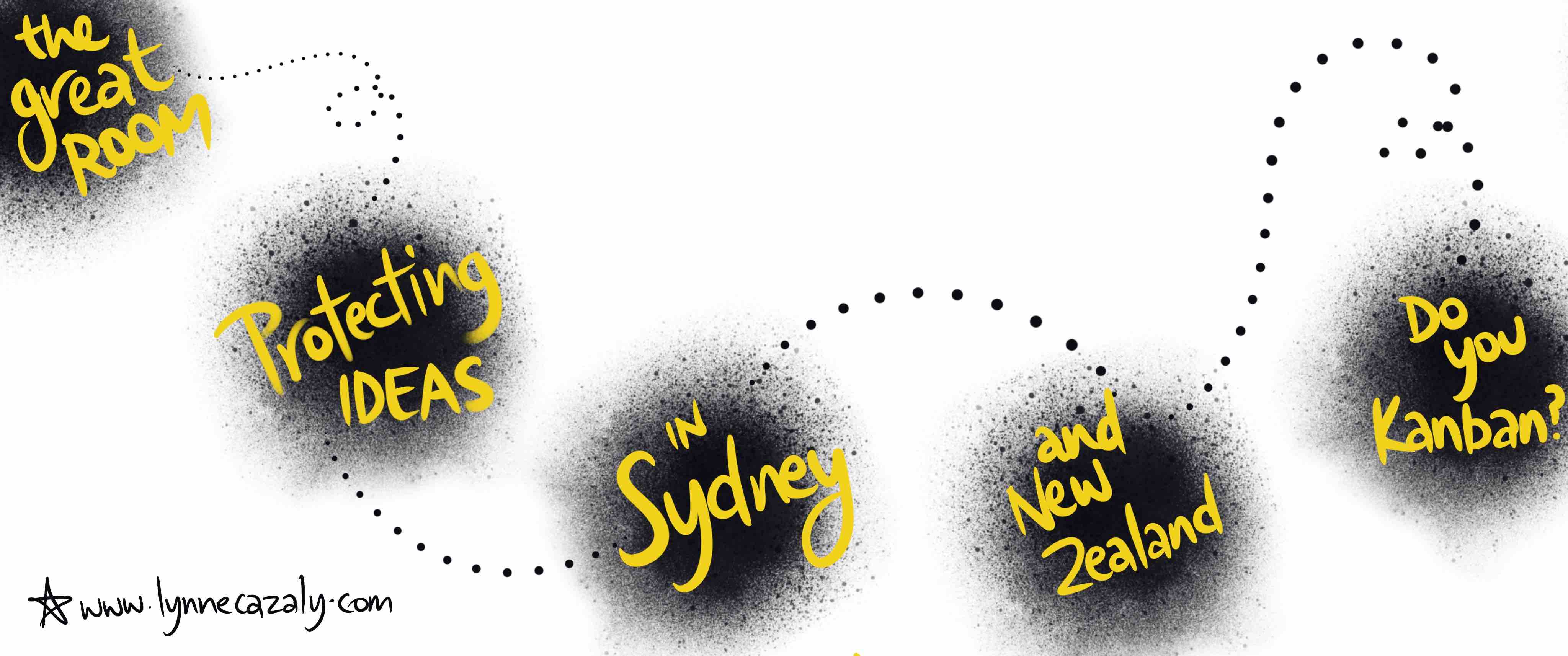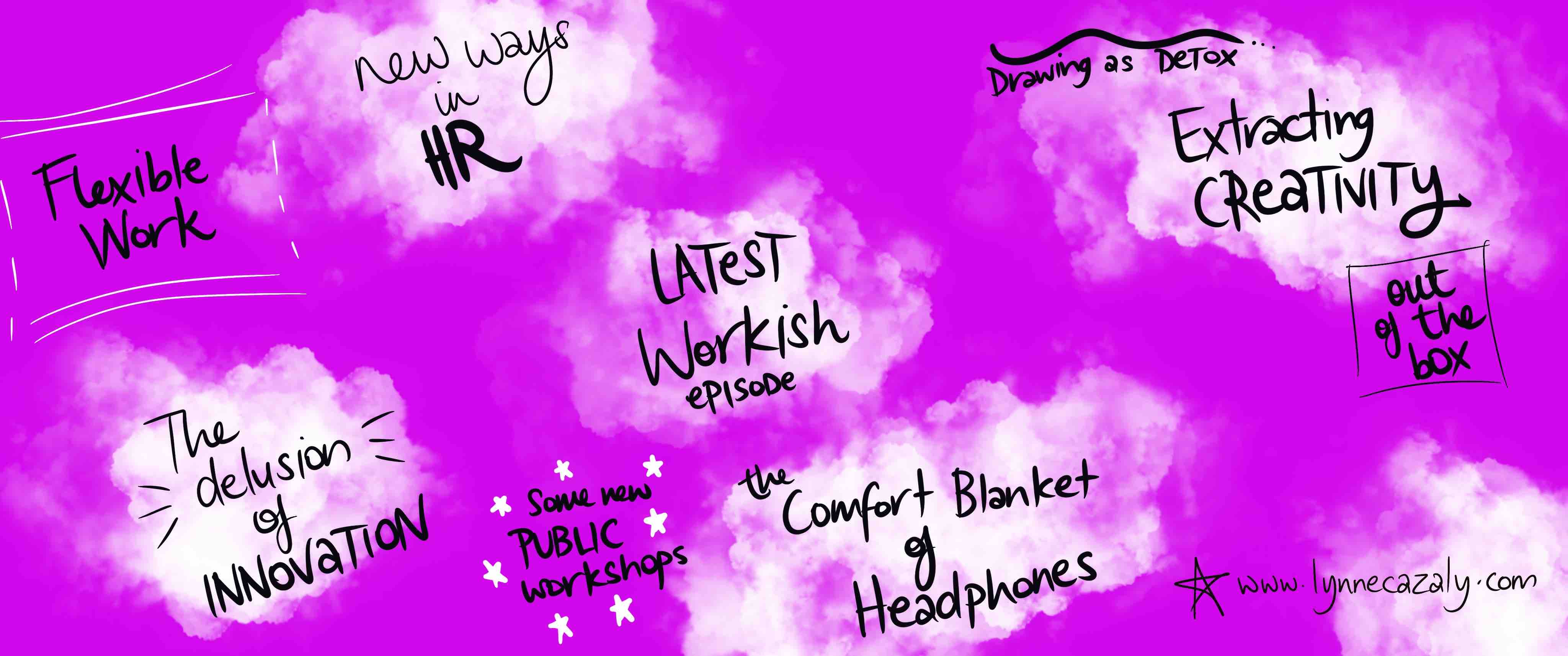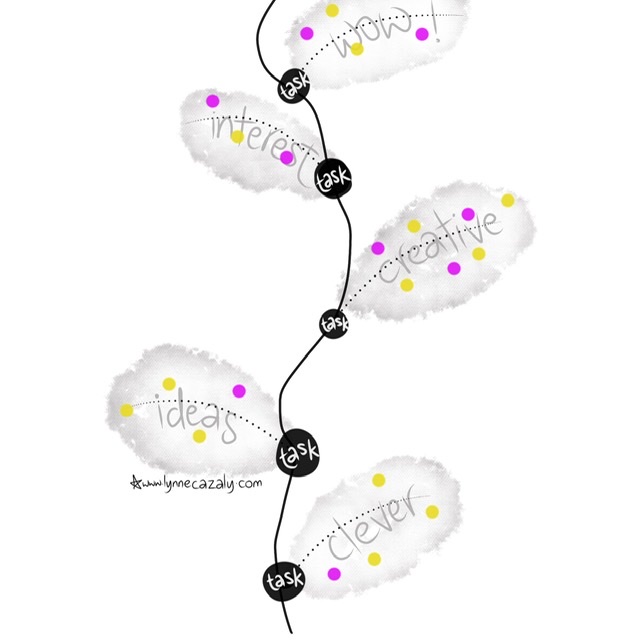Protect ideas/Do you Kanban?/Workshops in Sydney... and New Zealand/The Great Room
 Monday, September 4, 2023 at 4:37PM
Monday, September 4, 2023 at 4:37PM  Protect the airspace around ideas
Protect the airspace around ideas
Sharing ideas with coworkers or colleagues can be an exciting time. You’ve had an idea and you want to verbalize it or explain it, explore it a little more.
But some people have that unfortunate wet blanket ability to cut down and dismiss ideas in three seconds flat! Their techniques might not be the old clichés of ‘we’ve tried that’ or ‘that won’t work’.
No, today’s idea deflaters are a little more insidious and subtle than that. Because the first thing you’ll notice is the inspiration you had for the idea has rapidly deflated and the focus is now directed elsewhere. The vibe has gone.
It’s like the time, space and idea has been hijacked.
Idea hijackers love to:
▫️contribute immediately with something they know or have done, ahhh, also known as ‘interrupting’.
This behaviour:
▫️deflects from your idea, and
▫️distracts with new information about something, somewhere or someone else.
They might keep hijacking when they:
▫️ elevate the something or someone else higher, greater and better than your idea
▫️ provide unsolicited comparisons
▫️ rush to premature solutions and conclusions, and
▫️ move the conversation on to other topics.
Boom. Slash. Switch. Sleight of hand and verbal misdirection. All the while, they’ve ignored that which was in front of them: you the human, and the idea you shared or expressed. Tune in to it. Notice it. The status shift in the conversation or interaction is observable and palpable.
Idea slashers get away with their frequent whipper-snipper action as if it’s just how things are these days.
No wonder people don’t feel safe sharing their thoughts and ideas, contributing or participating. Whether it’s ego, discomfort, narcissism, a desire to show their knowledge and power … whatever it is…It’s a perfect reason why collaboration and conversation often needs to be moderated, facilitated and ‘air traffic controlled’ to keep a watch for these rogue craft infiltrating protected airspace!
Rather than rushing to fix, shame or remediate the hijacker/interrupter, stand by and refocus the time, energy and attention of the group back to the original contributor. Redirect to the OG and re-explore from there.
Everyone can have their turn and have their say. But to handle these types of situations requires nuance and subtle diplomacy. Offence is everywhere.
These situations are exactly why today’s leaders need some new ways of leading.
-----
Live Workshops in Sydney
I'd love to see you at these half-day public workshops; tickets are now on sale for October dates
These are high impact morning workshops - all thriller, no filler 😉
🌕 VISUAL SENSEMAKING : October 17
Use these clever visual skills every day to sketch, scribe, think, lead & manage - the perfect communication and collaboration skills
🌕 ADVANCED TECHNIQUES IN FACILITATION : October 18
Lift your capability to design processes, lead groups and achieve outcomes. Handle challenging situations, people, groups and projects.
🌕 CHANGE TOOLS : October 19
Leading change needs clever, creative, adaptive tools. Use these 10 change tools to better engage, lead & impact change & transformation.
Get tickets via Eventbrite here
---
Great things in the great room
It couldn’t have been a better name for a conference room… the ‘Great Room’ at W Melbourne Hotel.
It made me laugh with nervous expectation!
It was great because the room was full of glorious people from a great team at UniSuper. Great because they’d been learning, inspiring, advancing and working on their professional development.
And then great for me because I had the pleasure of joining them for the closing keynote of the program. It was all primed for … greatness.
We wanted to do more with that closing session than just the keynote speaker who … speaks.
We went further with a facilitated experience to boost attention, engagement, connection and participation.
And then we went further … with a co-creation, contribution and euphoric wrap-up experience that would seal the learning and carry it forward into workplace action.
Conference delegates need more than passive listening or clichéd games. They have contributions to make, ideas to share and insights to inspire.
This is what I call ‘The Co-Creation Experience’ and it’s available now for great teams in great rooms at great conferencing events.
Yes … please go beyond the pale stale dot point slide shows that are too often the default.
Great things can happen at a conference gathering … if you plan for a great co-creation experience.
And now I need a little lie down … 💤😄
---
Move this from 'Backlog' to 'To do'
Do you Kanban?
Then join me for the Kanban Australia Conference in Melbourne October 9, 2023 - at the Jasper Hotel in Melbourne CBD.
It's a full day to connect, share and learn about the use of Kanban in Australia and neighbouring regions.
New tools, thinking and support to deepen our capability.
I'll be closing keynote speaker on 'The 3 Futures of Work'. And there'll be no photos of robots or AI, promise! 🤩
Get tickets for $275 - and it includes lunch. What's not to like?
Pull it pronto into your To Do column, no ... straight into Doing, now!
---
And I'm returning to New Zealand November 2023
Yes it's all happening! So many in person events, conferences and workshops are filling up in calendars everywhere.
After running workshops recently in August, a return visit is planned in November 2023.
There are 3 x half-day workshops
➡️ Visual Sensemaking
➡️ Advanced Techniques in Facilitation
➡️ Change Tools
Learn more / Plan ahead / Get tickets!
---



















